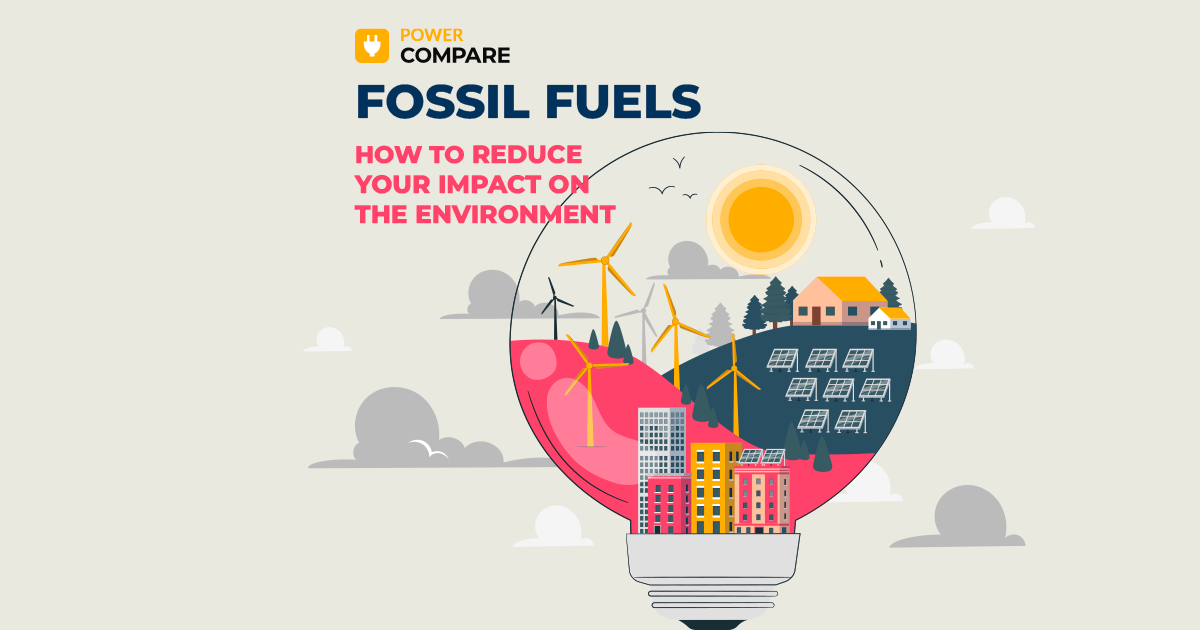What are fossil fuels and how can we reduce our impact on the environment around the house?
In New Zealand, our electricity comes from a range of sources. A lot of it comes from renewable sources such as wind, hydro power, solar, and geothermal energy. But a portion of it also comes from non-renewable sources such as fossil fuels.
What are Fossil Fuels?
Fossil fuels are a source of energy. They are made from the decomposition of plants and animals over millions of years. Engineers and scientists can extract this material from sediment through mines and can burn it to generate electricity. There are generally three types of fossil fuels: coal, gas and oil.
While fossil fuels are a reliable source of energy, they are considered a “dirty” and harmful resource. This is because when we burn fossil fuels, it generates carbon dioxide into the atmosphere, which is harmful to our air and our environment.
In New Zealand, energy retailers can’t generally “choose” where their electricity comes from. It comes from both renewable sources and fossil fuels. Therefore, you can reduce your environmental impact by lowering the amount of power your household consumes. When you lower your power consumption, you can also make a big difference to your energy bill! Save the environment and save money!
How Can I Lower My Power Consumption?
1. Energy Efficient Appliances
If you have old household appliances, consider upgrading them to modern ones. Your old fridge, heater, or washing machine could be the culprit of high power consumption, because they are just not as energy efficient as modern appliances. Energy efficient appliances use less energy to do their jobs, meaning that they can minimize the amount of power you consume.
2. Unplug Devices When Not Using Them
Did you know that when your appliances are not in use, they fall into standby mode, or vampire power. This is a mode that allows them to be ready to use when you are. For example, your TV will still use a little bit of electricity to power the remote control sensor. Be sure to turn off appliances and devices such as your phone charger at the wall when you are not using them to save unnecessary energy consumption.
3. Clean Appliances
Make sure that your appliances can run smoothly without having to work harder than necessary. Clean the filter in your heat pump. Declutter your fridge and freezer of old food so cold air can circulate efficiently. By ensuring your appliances can work properly, they won’t have to work as hard and use as much energy, thus saving you money and helping reduce your carbon footprint.
4. Choose Cold Water
It takes electricity to heat water. When possible, choose to use cold water. For example, run your washing machine on the cold setting rather than the hot water. Most modern detergents can clean your clothes just as well and the cold water will protect the integrity of your clothes. Save the hot water washes for after a bout with the cold or flu – the hot water wash can be a great reset for your bed sheets! Try also pausing the shower while using soap or shampoo to reduce your hot water consumption. You’ll save money on your power and water bills!
5. Close and Open Blinds
In the morning, open your blinds to allow the sun’s heat to come into the house. But in the evening, be sure to close the blinds and curtains to trap in any warmth. You can further trap heat by making sure your home is properly insulated and that doors and windows seal properly. In the winter, add a couple of rugs around the house to further trap heat. By trapping the warmth, your heat pump won’t have to work as hard to warm your home, and will save you power. Another simple way to add warmth into the home is to leave the oven door cracked open after using it.
Compare Power
You can further lower your power bill by comparing your power plan. Power Compare is a user-friendly platform designed to make it easy and quick to compare different power plans and providers available to you. Make a fully informed choice and unlock savings that make a difference to your monthly expenses by simply comparing. You are likely to find a better deal than what you are currently on. Why pay more, when you can pay less?



